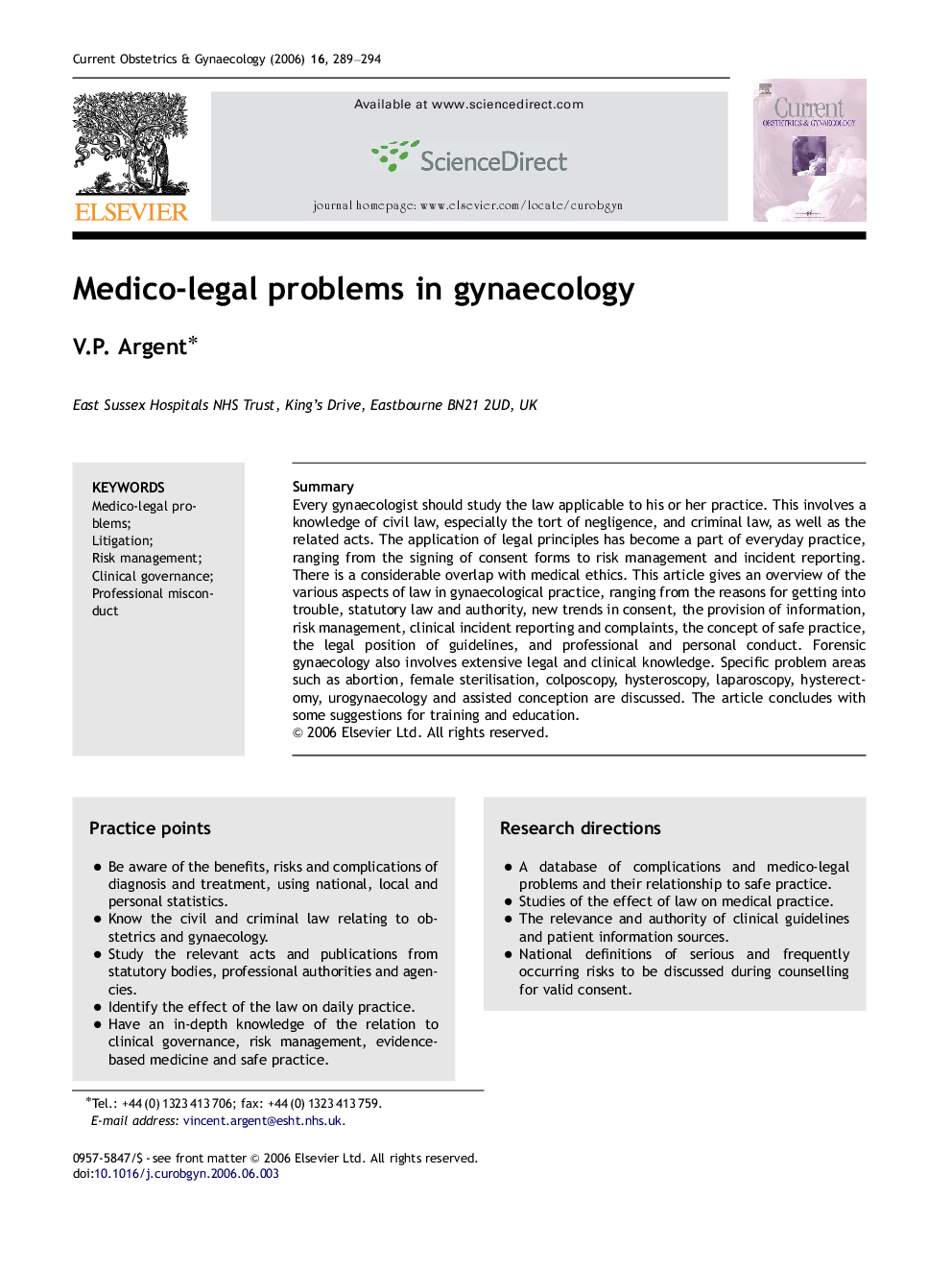| Article ID | Journal | Published Year | Pages | File Type |
|---|---|---|---|---|
| 3916312 | Current Obstetrics & Gynaecology | 2006 | 6 Pages |
SummaryEvery gynaecologist should study the law applicable to his or her practice. This involves a knowledge of civil law, especially the tort of negligence, and criminal law, as well as the related acts. The application of legal principles has become a part of everyday practice, ranging from the signing of consent forms to risk management and incident reporting. There is a considerable overlap with medical ethics. This article gives an overview of the various aspects of law in gynaecological practice, ranging from the reasons for getting into trouble, statutory law and authority, new trends in consent, the provision of information, risk management, clinical incident reporting and complaints, the concept of safe practice, the legal position of guidelines, and professional and personal conduct. Forensic gynaecology also involves extensive legal and clinical knowledge. Specific problem areas such as abortion, female sterilisation, colposcopy, hysteroscopy, laparoscopy, hysterectomy, urogynaecology and assisted conception are discussed. The article concludes with some suggestions for training and education.
